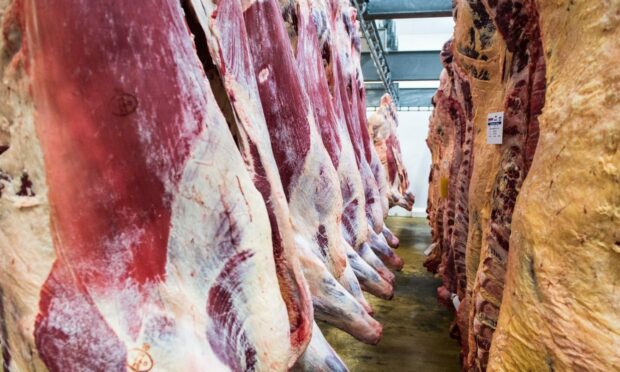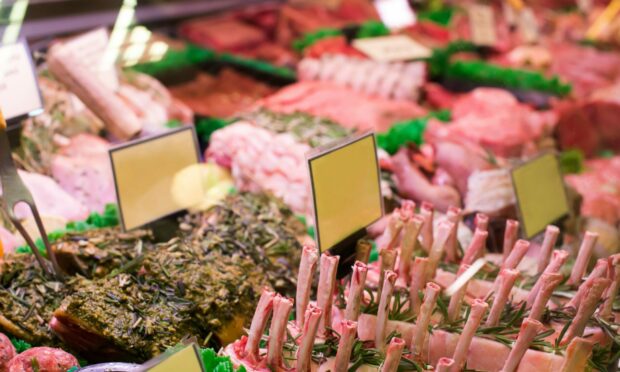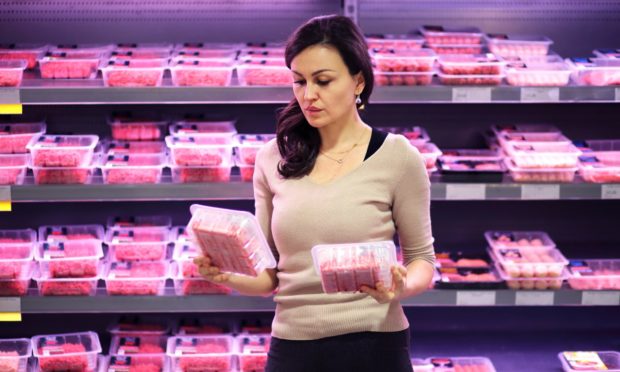Plans to build a new abattoir in the north-east of Scotland will remain on hold, Scotbeef Inverurie has confirmed in its latest accounts.
The company – which is jointly owned by Scotland’s largest red meat processor JW Galloway and north-east farmers’ co-operative ANM Group – has long been planning to build a new abattoir on land at ANM’s Thainstone Business Park near Inverurie.
However, the plans were put on hold due to the “unknown impact” of Covid-19 and Brexit on the company’s marketplace.
In its latest accounts, which cover the year to February 28, 2021, JW Galloway and Scotbeef Inverurie managing director Robbie Galloway said: “In light of the continued uncertainty posed by further Covid-19 outbreaks, the directors have decided to keep the project in its current status, and the group will look to restart it when the economic outlook is more certain.”
The accounts reveal a drop in both turnover and pre-tax profits during the year.
Turnover was down slightly to £68.25 million, from £68.28m the year before, while pre-tax profits were down 48% to £350,000.
Mr Galloway said: “The company’s historic high street butcher and food service customer base was affected during the Covid-19 lockdowns.
“The company has diverted more volume through wholesale channels to compensate, however these generally attract lower gross margins and volume sold to other group companies also increased.”
Meanwhile, the latest accounts for JW Galloway – which includes Scotbeef and Vivers Scotland, in addition to Scotbeef Inverurie – show a boost in both turnover and pre-tax profits.
The accounts, filed with Companies House and covering the year to February 28, 2021, show an 87% increase in pre-tax profits to £8.28m, from £4.43m the year before.
Turnover was up by 12% in the year to £430.92m, from £384.45m previously.
The bulk of sales – £402m – were in the UK, while sales to Europe decreased by 27% to £28.85m, from £39.46m the year before.
In his report accompanying the accounts, Mr Galloway said turnover had increased as a result of strong UK sales volumes into the retail sector, which benefitted from lockdown restrictions on the food service sector.
“Increased demand in an area which predominantly specifies UK bred livestock has inflated input prices, exacerbating the competitive pricing environment,” added Mr Galloway.
“The group continued to invest in its processes and equipment in order to ensure the latest technology is made available.”
He said the group had successfully navigated its way through the initial effects of the pandemic, however Covid-19 mitigation measures had increased operating costs.
Looking forward, Mr Galloway said: “The group is committed to increasing its processing capability by investment in additional production facilities and more efficient production methods within existing facilities.
“The export market has offered business development opportunities in the past and the group is looking to develop new export markets that may become more readily accessible as the Government negotiates trade agreements with partners outside the EU.”
The accounts also reveal JW Galloway employed an average of 1,318 staff in the year – up from 1,175 the year before – and the highest paid un-named director took home a pay cheque of £496,000. This compares to £362,000 the year before.


